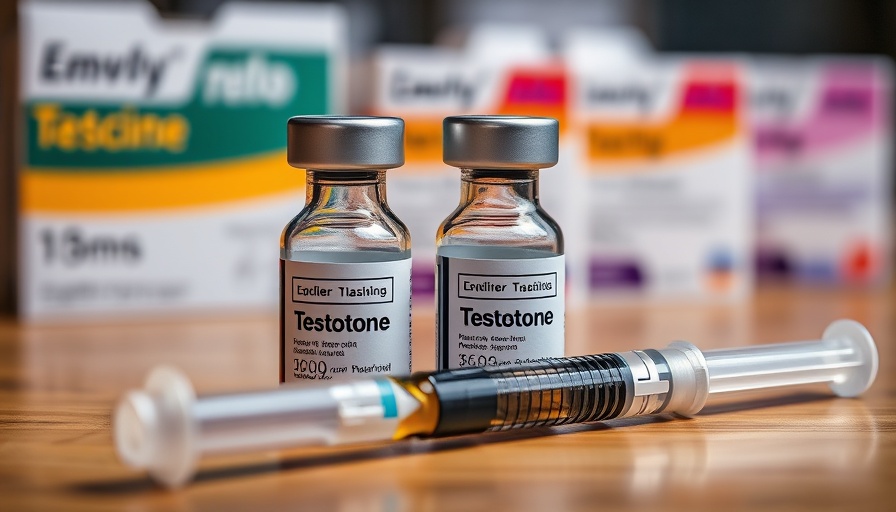
Young Men and the Rise of 'T Maxxing'
In recent years, an increasing number of young men have been drawn to the concept of 'T maxxing'—boosting testosterone levels through various means. This trend raises questions: Why are they pursuing higher testosterone, and at what cost? Understanding this phenomenon requires looking into the social, medical, and psychological factors that contribute to it.
Understanding Testosterone and Its Importance
Testosterone is a crucial hormone that affects everything from muscle mass and energy levels to mood and libido. For many men, especially those in their twenties and thirties, reduced testosterone can lead to feelings of lethargy, decreased libido, and difficulty gaining muscle. Consequently, young men seeking vitality and improved physical appearance might turn to testosterone supplements or treatments to seek relief from these symptoms.
Social Pressure and Cultural Trends
The influence of social media and cultural expectations cannot be underestimated when examining 'T maxxing'. Young men are bombarded with images and representations of masculinity that emphasize muscle, strength, and assertiveness. Many men feel pressured to embody these ideals, and achieving higher testosterone levels is seen as a shortcut to becoming the 'ideal' man. But what happens when the quest for ideal manhood leads to potentially hazardous health practices?
The Risks of Testosterone Treatments
While optimizing testosterone is appealing, there's a potential dark side. Using testosterone treatments can lead to a range of side effects, including mood swings, acne, increased risk of heart disease, and even infertility. Furthermore, self-diagnosing low testosterone can lead to misuse of supplements without medical supervision. Young men need to be aware of these risks and consult healthcare professionals before pursuing such treatments.
Healthy Alternatives for Vitality
Instead of resorting to testosterone treatments, there are natural ways to boost energy and vitality. Adopting a balanced diet rich in nutrients, engaging in regular physical activity, managing stress, and ensuring adequate sleep can help improve overall health and well-being. Alternative approaches, including naturopathy and lifestyle medicine, provide holistic methods to enhance health without the risks associated with hormone treatments.
Future Perspectives: Testosterone and Men's Health
The conversations around testosterone are evolving. As more young men are reporting symptoms of low testosterone, healthcare providers are investigating underlying causes, such as lifestyle factors and environmental influences. Awareness campaigns promoting mental health and encouraging open discussions about masculinity can lead to more informed decisions about health and wellness.
The Role of Community Health and Wellness
In communities, such as San Antonio, health and wellness centers are expanding their services to cater to young men seeking help. These centers often offer educational resources on testosterone, health screenings, and alternative treatments that encompass nutrition and mental well-being. Connecting individuals with these resources can empower them to make informed choices regarding their health.
Decisions to Make for Health and Wellness
Ultimately, the decision to pursue 'T maxxing' should come with significant consideration of its risks. Young men can benefit from being informed partners in their health management, which includes understanding the signs of hormone imbalances, seeking professional guidance, and possibly exploring holistic health options such as herbal supplements and lifestyle adjustments.
If you or someone you know is troubled by low energy or other related issues, considering a well-rounded approach to health and wellness can offer lasting benefits without the complications of hormone treatments. Healthy living is achievable through balanced nutrition, fitness, and community support—empowering individuals to live with vitality naturally.
 Add Element
Add Element  Add Row
Add Row 



Write A Comment